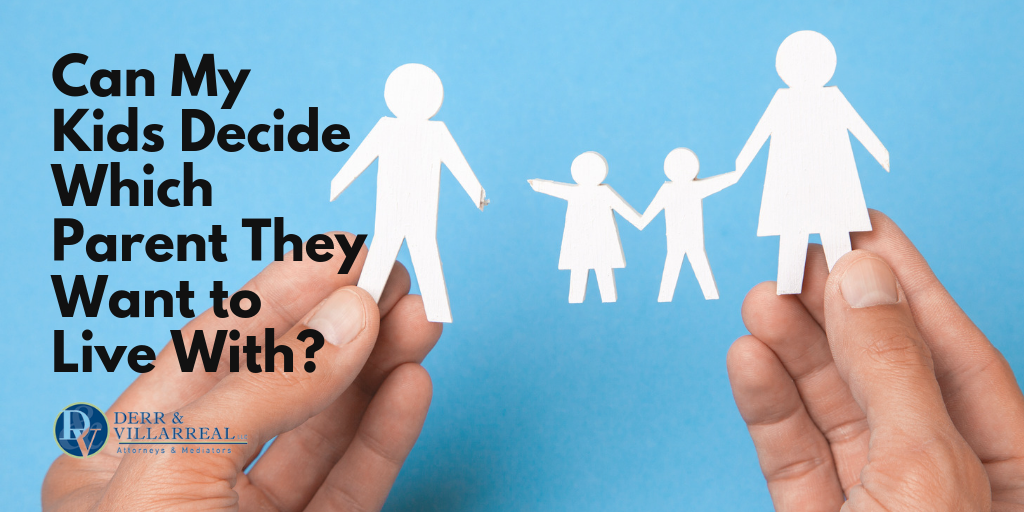Can my kids decide which parent they want to live with?
Lisa Derr
Lisa Derr is an experienced Divorce and Family Mediator with three offices in east central Wisconsin. She started the family mediation practice in 1995. Lisa earned her BA in psychology from the University of Wisconsin in 1984 in four years despite a serious car accident that involved a 2-month hospital stay. She began practicing law in 1987. For the first 8 years of her career, Lisa litigated personal injury and divorce cases. But she was frustrated with the tremendous financial and emotional cost of divorce trials. Contested hearings inhibited reconciliation and healing for thewhole family. She started the Beaver Dam divorce mediation practice in 1995 and with her partner, Cassel Villarreal, expanded to Oshkosh and West Bend ten years later.

 Sometimes in a divorce, kids express a clear interest in living with one parent or the other. It often leads to the question: “Can my kids decide which parent they want to live with?” In Wisconsin, that’s generally not the case. The Court makes decisions based on what they believe is in the child’s best interest – and usually, that includes custody with both parents. Here are some more details to consider in answering the question.
Sometimes in a divorce, kids express a clear interest in living with one parent or the other. It often leads to the question: “Can my kids decide which parent they want to live with?” In Wisconsin, that’s generally not the case. The Court makes decisions based on what they believe is in the child’s best interest – and usually, that includes custody with both parents. Here are some more details to consider in answering the question.